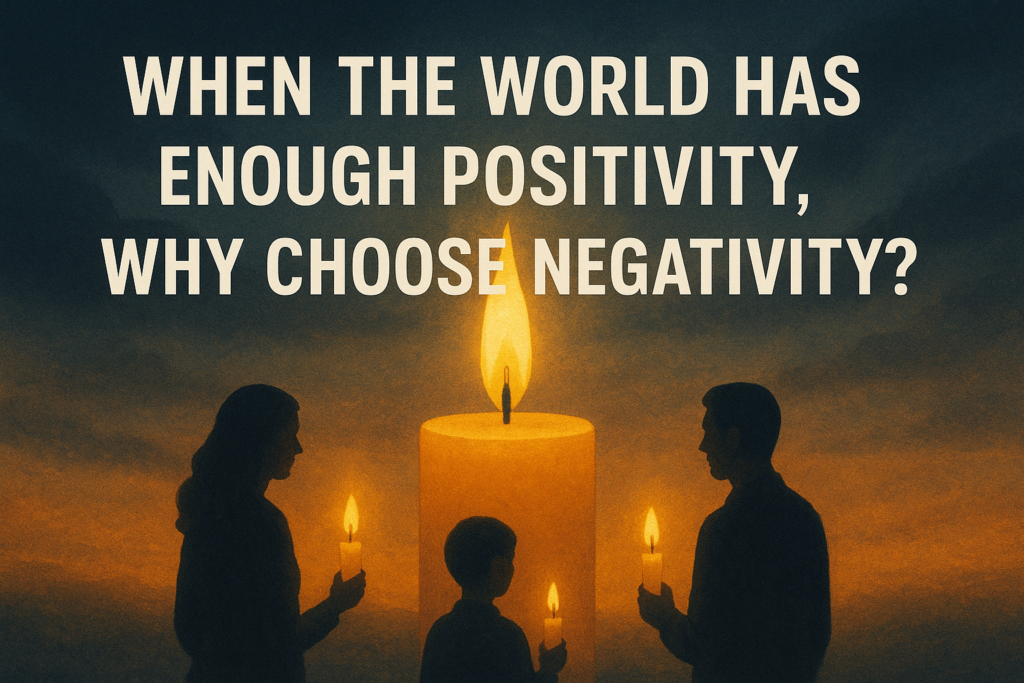
How many of us really feel happy, the moment we wake up? We’ve all experienced difficulty getting out of bed in the morning. Or, later, when your head feels heavy and you’re afraid your eyes will close at any moment. Perhaps you have a low energy level in the evenings and find it difficult to get through the day. It’s difficult to maintain your stamina throughout the day.
Most of us have experienced feeling exhausted and drained at the end of the day. Fortunately, there are a variety of healthy ways to minimise weariness and increase energy levels.
In reality, a few minor changes to your daily routine can have a big impact on how energetic you are, as well as many other parts of your life.
People who enjoy themselves and are active tend to live better lives. You will be better able to cope with stress and enjoy life more if your self-esteem improves. If you want to be more fun-loving and lively, there are a variety of ways to do it.
1. Protein and Sunlight to Begin the Day.
Natural light is the most powerful influence on our circadian cycles. To begin the day, open the blinds or take a walk outside. For a variety of reasons, it’s a fantastic way to start the day. Melatonin, the sleep-inducing hormone, will decrease in response to sunlight. Getting some sun signals to your body that it’s time to get up and go.
Prepare a breakfast that will help you maintain your energy levels for longer. Choose high-protein items in the morning, such as eggs, yoghurt, and nuts. Protein and whole grains take longer to break down into energy in your body. This helps to avoid a morning collapse produced by a breakfast high in simple carbohydrates and sugar. Protein also improves your concentration and productivity. Eating high-protein snacks and meals throughout the day can also help you feel energised.
2. Exercise on a regular basis.
Exercise improves your general health, makes you stronger, and improves the efficiency of your body. When all of these things are combined, you will feel more energised. Participate in physical activities that you enjoy. Some people identify exercise with going to the gym or participating in physical education classes, but this is only a small part of what exercise might include. You can go for a walk, a hike, a dance, a bike ride, or a jog, or you can play any sport.
Exercise not only improves your health and makes you feel more energised, but it also makes you happier, more optimistic, and less nervous.
At least 3-4 times a week, or 150 minutes, engage in some type of physical activity.
3. Maintain a balanced diet.
Food is the fuel that our bodies require for energy. Build your diet around whole, unprocessed foods that are high in nutrients and can help you feel more energised.
Empty-calorie items, such as pre-packaged meals, chips, sodas, and candy bars, are heavy in sugar and poor in nourishment. After offering a brief energy boost, these foods actually deplete energy levels.
Foods that supply complex carbs, are low in fat and include a modest quantity of protein are a good combination of components to eat. Spread your daily calorie intake equally throughout the day and avoid missing meals in favour of a large supper later. If possible, consume five meals every day to keep your daily calorie intake in check.
Make sure you don’t miss any meals. There will be a loss of energy as a result of this. To stay moving, your body requires nourishment, just as a vehicle requires gas to keep going. Drink plenty of water as well. Low energy is caused by dehydration. Each day, drink 8 to 9 glasses of water. The majority of healthy persons can safely consume 400 milligrammes (mg) of caffeine per day.
4. Make sure you obtain all of the vitamins and minerals you need.
B vitamins and iron are key minerals that aid in energy production. You may feel low energy levels if you are weak in these nutrients. Iron and B vitamins are critical for your body’s ability to make and use energy. Vitamins 12, 6, thiamine, niacin, and folic acid help your body’s energy metabolism, while the iron is required for healthy red blood cells, which transport oxygen.
Anemia and exhaustion can be caused by a lack of B vitamins and iron. Consider taking a multivitamin with iron and key B vitamins if you don’t receive enough of these and other micronutrients in your diet.
5. Get plenty of rest.

If you’re tired all the time, it’s possible that you’re not getting enough sleep. Adults should obtain between 7 and 9 hours of sleep each night, according to the Sleep Foundation.
Make certain you get enough rest. Establish a consistent bedtime and stick to it every night, including on weekends. If you need to change your bedtime, start with small daily increments (15 minutes earlier every night) until you reach your goal. Also, make it a habit to get up at the same time every day.
Heavy meals and excessive alcohol consumption should be avoided right before bedtime because they may make sleeping more difficult.
If you suffer from insomnia or sleep difficulties, you may feel tired and unmotivated. Fatigue, on the other hand, can be a problem.
Fatigue, on the other hand, can be a symptom of a more serious health problem. If you don’t feel invigorated after getting adequate sleep and eating well, you should see your doctor.
6. Yoga is something you should do.
Yoga, in addition to the other health benefits it provides to your muscles and cardiovascular system, can help you minimise weariness and increase your energy levels. Breathe deeply during yoga poses to replenish your blood with oxygen. Your nervous system will be stimulated, and you will feel more energised.
Try the breathing practice below:
Sit with your spine straight on the floor. Count to four while inhaling through your nose. Then count to eight while exhaling. Repeat.
Start by standing and bending forward and down in the Uttanasana yoga pose, which is an energetic forward bend. Allow your upper body to hang toward your toes with your knees slightly bent. Allow your spine to stretch while you take deep breaths.
7. Increase your physical activity.
Regular movements can help you lower your risk of chronic conditions like heart disease, type 2 diabetes, and obesity. Furthermore, some studies suggest that increasing your physical activity can help you battle weariness and boost your energy levels. University students who engaged in a low-intensity jogging programme three times per week for six weeks saw significant improvements in fatigue and sleep quality when compared to a control group, according to one small study.
Regular movements help in overall exhaustion, emotional exhaustion, a good night’s sleep, a good cognitive function, and good workability including fitness in your daily routine.

8. Smoking, caffeine, and alcohol should all be avoided.
Smoking is not only terrible for your health, but it can also make you fatigued during the day. Nicotine is a stimulant that raises heart rate and blood pressure while also causing sleeplessness. When the buzz wears off, nicotine, like caffeine, may cause your energy to collapse and burn.
You’re probably aware that consuming alcohol makes you drowsy. However, you may not be aware that a drink in the afternoon provides the most energy-boosting effect. To stay energised till later in the evening, avoid drinking alcohol at lunch or in the afternoon.
While coffee and other caffeinated drinks provide a burst of energy, they can also make you feel even more fatigued once the buzz has worn off. Caffeine is a stimulant that has a short-term effect and can lead to addiction. As the effects of coffee wear off, your body will need more. Caffeine also increases stress levels, makes you jittery, causes headaches, contributes to high blood pressure, and makes it harder to relax and fall asleep at night.
Happiness, in its fullest sense, makes you feel energised. Energy is made up of the constituents of happiness. Although love and happiness do not originate in the heart, they are beneficial to it. Do you know someone who is usually grumpy and is more prone to being sick? That may not be a coincidence: Studies are now showing a correlation between happiness and a better immune system. Stress is also countered by happiness. Stress causes physiologic changes in our hormones and blood pressure, in addition to being upsetting on a psychological level. Happiness appears to mitigate these consequences, or at the very least speed up our recovery.
Let’s look into how you might be happier and more energetic in your life.
1 Keep your tension under control.
Stress is a severe illness that includes emotional and physical strain as well as anxiety. Reduce or remove stress in your life to help you reconnect with your fun-loving side. Stress can be caused by both negative and positive events in your life, such as problems at work or school or preparing for a friend’s birthday party.
Nobody is immune to stress; nevertheless, if you are stressed for an extended period of time, it can have a bad influence on your health.
Make efforts to reduce stress and increase your enjoyment of life. Exercising regularly, getting enough rest and relaxation, eating a nutritious diet, and treating yourself to something special can all help to reduce stress.
2. Engage in a pleasurable activity.
If you think you’re not a fun person because you never do anything that makes you happy or excited, try to find something that makes you happy and excited. Depending on the type of person you are, the activity that makes you happy can vary greatly. Introverts may find their energy in solitude, whilst extroverts may find satisfaction in crowds and being the focus of attention. Whatever activity you choose, you must first figure it out for yourself before proceeding.
Go hiking, skiing, running, swimming, or bicycling if you enjoy the outdoors and nature. These are simple activities that require little planning and equipment and that you may complete on your own.
Alternatively, do something different like horseback riding, rock climbing, parasailing, hiking, and so on. You could be surprised to discover inner contentment you didn’t know existed.
If you require company and/or encouragement to try new activities, invite a buddy or spouse to accompany you. Finding a new sport to undertake together might also help to bring out your playful side.
3. Take care of your sadness.
Sadness or feeling gloomy, like stress, can damage your mental and physical well-being, as well as dampen your fun-loving side. Low enthusiasm, tiredness, and/or low self-esteem are all symptoms of sadness. It’s more difficult to be fun-loving when you’re low on energy, drive, and hope.
Getting rid of depression can sometimes be as simple as getting out of the house and doing something pleasant and enjoyable. When you’re depressed, it’s natural to withdraw and avoid social situations. Force yourself out of the house if you find yourself spending all of your time alone at home. You can go shopping, go for a walk, or go to the movies to see a hilarious film. Anything that gets you out of the house and allows you to spend time with your friends and family counts as a win.
The hardest part is leaving the house, but once you’re out, you’ll find yourself forgetting about your melancholy and enjoying life. Whether you can’t seem to shake your unhappiness, consult a doctor to check if you have depression. Consider getting medical help to see if you’re suffering from depression. Warning: untreated depression can lead to suicide ideation. Seek treatment right away if you or someone you love is suffering from depression or a depressive episode.

4. Improve your ability to think optimistically.
Negative feelings and thoughts have the power to knock you down and damage your self-esteem. Learning to see the bright side of life can improve your life and help you to express your playful side. You may not be able to manage your outward surroundings all of the time, but you can always control your inner environment.
You can also break free from negative ideas by telling yourself “I can” and refusing to be dragged down by rude people or unfavourable events.
5. You must respect and honour yourself.
To be able to be more fun-loving, you must first honour and appreciate yourself. Honouring oneself entails valuing your life and all that you have achieved and done. Friendships, family, children, and even strangers with whom you have made contact fall into this category.
You must accept yourself for who you are in order to honour yourself.
You can only bring up your fun-loving side after you realise who you are and can appreciate that person. To learn to respect oneself, make a list of your major accomplishments. (For example, graduating from high school, having children, purchasing a home, climbing a mountain, achieving a personal goal, etc.) Then concentrate on those accomplishments and allow yourself to respect yourself as a result of them.
6. Push yourself outside of your comfort zone.
To be more fun-loving, you must sometimes allow yourself to attempt new things rather than sticking to things with which you are already familiar. We frequently confine ourselves to a zone where we are at ease, but this does not always imply that this is where we are happy.
Allow yourself to experiment, take risks, and enjoy yourself. There are, however, limits to what you can and should do, and you should never try or do things that harm others. To break free, first, recognise your comfort zone and how you naturally tend to stay in it. Change your typical style of thinking and behaviour to gradually break out of your comfort zone once you’ve identified it.
For instance, start by writing a list of everything you do to avoid uncertainty (e.g., are there situations that you avoid, do you check on your kids constantly, do you suffer from lack of trust).
After you’ve made your list, start with the modest things you can do to break the loop (e.g., go to a place you have never visited before, seek situations you normally avoid and allow yourself to be more trusting).
Keep track of all the times you achieved your goal and what happened each time (e.g., what happened when you visited a new place or pursued an unfamiliar situation).

7. Pray from your heart
One of the most potent forces in the universe is prayer. Why? Since they can make everything feel perfect, prayers. Regardless of religion, a single prayer has the power to change everything.
Not that prayers can finally resolve all of your issues, but they can alter your perspective, is what we mean. They have the power to transform depressing emotions into upbeat ones and depressing ideas into upbeat ones.
Conclusion:
Life is too short to waste on misery!
It’s all in your head, so forget about anything that makes you unhappy or depressed before you start.
Don’t get caught up in the past; instead, live for the future.
Consider putting on some bold colours. This could provide you with a much-needed boost.
Sugars will deplete your energy rather than replenish it, so avoid them.
Originally posted 2022-04-25 04:11:35.







Pingback: The 10 Biggest Weight Loss Myths - 2022 - Eastside Writers
Pingback: A Complete Guide to Detox and Rejuvenate Your Body - Eastside Writers
Pingback: How the Moon Can Affect Human Behaviour and Health While changing Phases - Eastside Writers